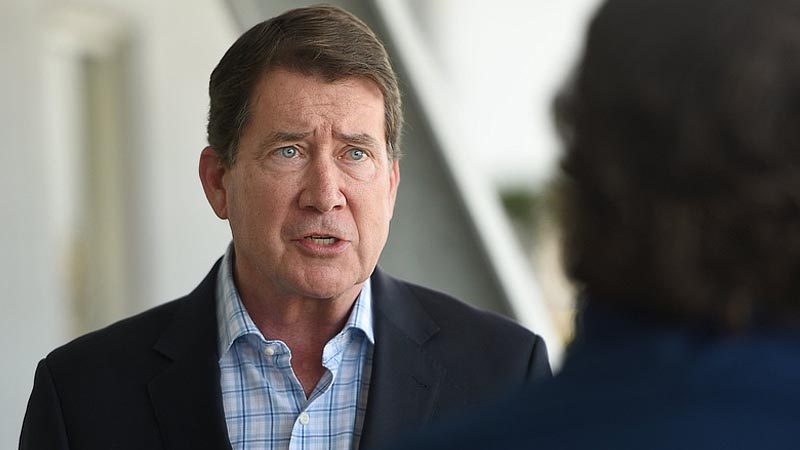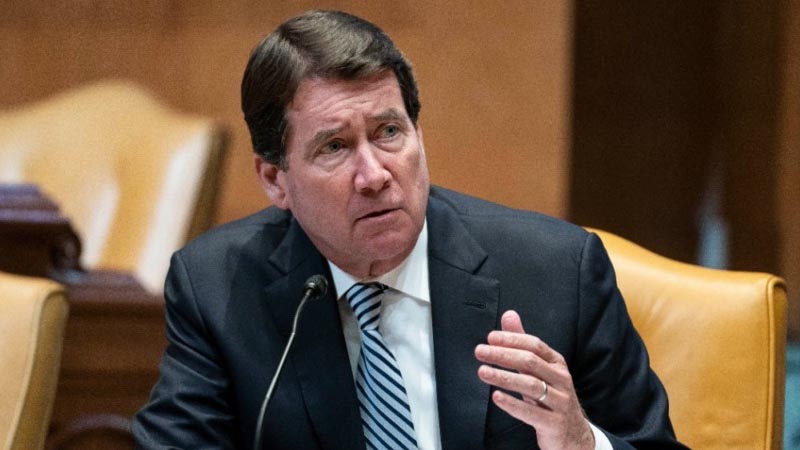ABC host Jonathan Karl pressed Sen. Bill Hagerty (R-TN) on Sunday after the senator suggested FBI background checks for President-elect Donald Trump’s nominees might not be necessary. The discussion arose amid controversy surrounding defense secretary nominee Pete Hegseth, who faces allegations of sexual misconduct.
During an appearance on ABC’s This Week, Karl highlighted that Sen. Joni Ernst (R-IA) had called for FBI background checks for Trump’s nominees, particularly Hegseth. Karl asked Hagerty directly if he supported such vetting before confirmation votes.
“As you know, there haven’t been FBI background checks for any of these nominees,” Karl said. “Do you agree with her, though, that this should happen before we get to confirmation votes?” Hagerty dismissed the emphasis on who conducts the vetting process. “I don’t think the American public cares who does the background checks,” he replied. “What the American public cares about is to see the mandate that they voted in delivered upon.”
Karl, seemingly taken aback, pressed further. “So are you saying you don’t care about FBI background checks? Should we just do away with them? It’s been standard practice, as you know, for a long time, but you’re saying do away with it?” Hagerty avoided a definitive answer on whether FBI checks should remain standard. “I’ve been through it myself,” he responded. “I’ve been through confirmation as well. They need to do these checks expeditiously.”

The senator then pivoted to criticize the FBI, implying skepticism about its impartiality. “The FBI, I think the American public’s got great concerns about how weaponized it’s become,” Hagerty added. “They need to get on with this. We’ll get this done.”
Hagerty’s remarks reflect growing Republican skepticism toward the FBI, an issue amplified during Trump’s presidency. His reluctance to endorse standard FBI background checks also signals a potential shift in how vetting processes are conducted under Trump’s incoming administration.
Critics argue that bypassing or downplaying FBI vetting could undermine trust in the confirmation process, particularly for sensitive roles like defense secretary. Proponents of Trump’s approach, however, assert that the focus should remain on fulfilling the agenda voters supported, not bureaucratic procedures.
The exchange underscores a broader debate over the role of institutional safeguards in Trump’s second term and the balance between transparency and political expediency. Whether FBI background checks will remain part of the process remains a contentious question as confirmation hearings loom.

